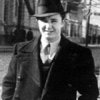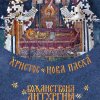Berislav V. Zlokovic, an internationally recognized leader in the research of Alzheimer disease and stroke from the University of Rochester Medical Center, has been appointed to the position of professor and chair of the Department of Physiology and Biophysics in the Keck School of Medicine, effective Dec. 15. Zlokovic has also been named the director of the new Center for Neurodegeneration and Regeneration at the Zilkha Neurogenetic Institute.
.“Dr. Zlokovic returns to the Keck School after spending the last 11 years at the University of Rochester Medical Center in New York,” said Carmen A. Puliafito, dean of the Keck School of Medicine. “I know that, under his guidance, both the Department of Physiology and Biophysics and the Center for Neurodegeneration and Regeneration will continue to make great strides in the research and understanding of systems and molecular biology.”
Zlokovic comes to USC from the University of Rochester Medical Center, where he is a professor of neurosurgery and neurology and director of the Center for Neurodegenerative and Brain Vascular Disorders. He is also director of the Interdisciplinary Program in Dementia Research and Dean’s Professor.
“My role will be to enhance an already very strong neuroscience base and try to make USC the number one place in the neurosciences in the country and the world,” said Zlokovic. “It’s a big goal, but I think, with what’s going on right now, it’s actually moving in that direction. I think that could be my greatest contribution.”
His research accomplishments include contributions to the understanding of the pathogenesis of disorders of the aging brain (as foundations for development of new therapies); discovery of mechanisms in cerebral blood vessels mediating brain dysfunction in Alzheimer disease; discovery of new therapies for Alzheimer disease based on amyloid-beta clearance; and discovery of the protein C pathway in the brain that has therapeutic implications for stroke and neurological disorders.
He has received numerous awards for his research on Alzheimer disease and stroke, including the Potamkin Prize from the American Academy of Neurology, the Javits Award from the National Institute on Neurological Disorders and Stroke, and a MERIT Award from the National institute on Aging.
Webster H. Pilcher, Frank P. Smith Professor and Chair, Department of Neurosurgery, University of Rochester Medical Center, said the University of Rochester Medical Center will feel the loss of a scientist of Zlokovic’s caliber.
“Dr. Zlokovic’s passion for scientific discovery and his earnest hope that patients will someday benefit from this work has inspired many here in Rochester and around the world,” said Pilcher. “His intellectual leadership, his passion for transformational discovery, his indefatigable persona and of course his operatic talents will be sorely missed in Rochester. Rochester’s loss will be USC’s gain.”
Zlokovic is a prolific author, with more than 250 published articles in journals such as Nature Medicine, Nature Cell Biology, Nature Neuroscience, Nature Reviews Neuroscience, and Science.
Prior to his time at the University of Rochester Medical Center, Zlokovic spent 11 years at the Keck School of Medicine, the last eight as professor of neurosurgery, physiology and biophysics.
“I have great memories of my time at USC,” said Zlokovic. “It was a very interesting place to be when I first started my career in the U.S., and right now, the momentum that is building up—with the new president, new leadership, both on the University Park Campus and here at the medical school—is in my opinion, very unique. It’s a most dynamic environment.”
Zlokovic received his bachelor’s degree from Belgrade College of Sciences in what is now Serbia. For his medical degree and doctorate, he attended the University of Belgrade, where he also completed his residency in clinical physiology (neurology and intensive care). He completed fellowships in transport biology at Queen Elizabeth College in the United Kingdom, as well as in neurobiology and blood-brain barrier transport at King’s College London, and in neurobiology and transport physiology at St. Thomas’ Hospital London.
Zlokovic will be joined in Los Angeles by his wife, Zora Mihailovich, a renowned concert pianist. Their daughter, Anna, is a sophomore at USC.
Sara Reeve
HSC Weekly 2011-10-21
Zlokovic tapped to head USC’s Zilkha Neurogenetic Institute
By Leslie Ridgeway
June 29, 2012
Berislav Zlokovic has been appointed director of the Zilkha Neurogenetic Institute (ZNI) at the Keck School of Medicine of USC.
Zlokovic, the institute’s deputy director and professor and chair of the Department of Physiology and Biophysics, begins his new role on July 1. He succeeds Pat Levitt, who has served as director since 2009.
He will also work with faculty leadership to integrate neuroscience research, training and education programs, as well as continue to serve as director of the institute’s Center for Neurodegeneration and Regeneration.
“Dr. Zlokovic is singularly well-qualified to lead the Zilkha,” said Carmen A. Puliafito, dean of the Keck School. “As the institute’s director, he will expand our efforts to build a world-class neuroscience program at USC. He will devise new neuroscience initiatives that bring together our best basic and clinical scientists, lead faculty recruitment efforts in collaboration with basic and clinical departments, and develop plans to increase philanthropic efforts. We also thank Dr. Levitt for his leadership and his numerous contributions to the Keck School’s success.”
An eminent scientist-clinician, Zlokovic is recognized for his contributions to the understanding of the pathogenesis of disorders of the aging brain (as foundations for development of new therapies), and for his research on the mechanisms in cerebral blood vessels mediating brain dysfunction in Alzheimer’s disease. In addition, he is internationally renowned for his work on stroke, including the discovery of the protein C pathway in the brain that has therapeutic implications for stroke and neurological disorders.
“I am honored to have the opportunity to lead this prestigious institute,” Zlokovic said. “It’s especially exciting to return to the Keck School of Medicine in this capacity, and I look forward to working with our researchers toward cures for diseases and conditions like Alzheimer’s, amyotrophic lateral sclerosis, stroke and Parkinson’s. I’m also grateful to Pat Levitt for the work he has done to create a solid foundation of science and innovation at ZNI.”
Zlokovic rejoined USC in December 2011 after spending the last 11 years at the University of Rochester Medical Center in New York. At USC, he spent 11 years at the Keck School, the last eight as professor of neurosurgery, physiology and biophysics.
While at the University of Rochester, Zlokovic was dean’s professor, professor of neurosurgery and neurology, director of The Center for Neurodegenerative and Vascular Brain Disorders, and director of the Interdisciplinary Program in Dementia Research.
He is currently the principal investigator for numerous grants, including two National Institutes of Health (NIH)–funded R37 awards to study pathogenesis and new therapeutic targets in Alzheimer’s disease, as well as two RO1 awards to study the development of therapies for ischemic stroke and investigate the role of pericytes in the adult and aging brain.
Over the course of the past 20 years, Zlokovic’s research has focused primarily on the relationship of vascular problems to Alzheimer’s disease. He was a pioneer of the concept that linked impaired blood flow and flaws in the blood-brain barrier to the development of diseases, such as Alzheimer’s, through their impact on neurons.
A prolific author, Zlokovic has written more than 250 published articles in journals such as Nature, Nature Medicine, Nature Cell Biology and Nature Neuroscience.
He has received numerous awards for his work, including the MetLife Award, the Potamkin Prize from the American Academy of Neurology, the Javits Award from the National Institute of Neurological Disorders and Stroke, and a MERIT Award from the National institute on Aging.
Zlokovic is also an active biotech entrepreneur, inventor and holder of several patents. He co-founded three companies with Selim Zilkha, a member of the Keck School Board of Overseers and a major donor to the Zilkha Neurogenetic Institute, including ZZ Biotech, which focuses on developing new treatments for stroke and Alzheimer’s disease.
Zlokovic received his bachelor’s degree from Belgrade College of Sciences in what is now Serbia. He received his medical degree and doctorate from the University of Belgrade, where he also completed his residency in clinical physiology (neurology and intensive care). Zlokovic completed fellowships in transport biology at Queen Elizabeth College in the United Kingdom, as well as in neurobiology and blood-brain barrier transport at King’s College London, and in neurobiology and transport physiology at St. Thomas’ Hospital London.
ZLOKOVIC BERISLAV, profesor univerziteta, akademik. R: 06. 03. 1952, Beograd, Srbija, Jugoslavija. OB: osnovnu skolu i gimnaziju zavrsio u Beogradu; diplomirao na Medicinskom fakultetu u Beogradu; specijalizirao klinicku fiziologiju; doktorirao na Koleyu Kraljice Elizabete, London, V. Britanija; posledoktorske studije 1980-82. na Kraljevskom koleyu u Londonu. ZA: od 1977. asistent, docent i vanredni profesor za medicinsku fiziologiju na Medicinskom fakultetu i vanredni profesor za neuronauke i biofiziku u Centru za multidisciplinarne studije Beogradskog univerziteta; 1984-88. vanredni viziting profesor na Seringtonovoj skoli za fiziologiju u Londonu i Bioloskom institutu u Plimutu pri Kraljevskom drustvu Engleske i visi naucni savetnik Biomedicinskog odeljenja Sandoz-a iz Bazela, Svajcarska; od 1989, po pozivu, vanredni profesor neurohirurgije, zatim i fiziologije i biofizike na Medicinskom fakultetu Univerziteta Juzne Kalifornije u Los Andjelesu, SAD, potom redovni profesor tih predmeta i od 1990. direktor Laboratorije za neurolosku hirurgiju na istom univerzitetu; redovni profesor i anesteziologije i direktor bazicnih istrazivanja za zastitu mozga na Odeljenju za anesteziologiju i clan Noris instituta za ispitivanje tumora mozga. DOS: rezultatima svog rada svrstava se u vodece svetske eksperte za fiziologiju i patologiju krvno-mozdane barijere; njegov koncept o transportu bioloski aktivnih peptida u mozgu je opsteprihvacen; pored drugih rezultata, autor je tehnoloskih unapredjenja u metodama istrazivanja u ovoj oblasti medicinskih nauka; autor je vise od 130 naucnih radova o krvno-mozdanoj barijeri i koautor monografija - Introduction to the Blood-Brain Barrier (sa Davson H, Selga M, Rakic LJ), Macmillan, London 1993, Blood-Brain Barrier: Amino Acids and Peptides (sa Segal M), Klunjer Acad., Boston 1990; Peptid and amino acid transport mechanisms in the central nervous sistem (sa Rakic LJ. i Begley Dj), Macmillan, London & Stockton Press, NJujork i dr; clan Srpske akademije nauka i umetnosti (od 1997.); clan Kraljevskog drustva za fiziologiju i medicinu, V. Britanija, Drustva za neuronauke i Drustva za oftalmologiju SAD i Medjunarodnog drustva za nauku i tehnologiju; clan je borda za neuronauke pri Nacionalnom institutu za zdravlje SAD, borda Binacionalne fondacije za nauku SAD-Izrcl i Saveta Americkog udruzenja za ispitivanje mozdanog udara; nosilac je vise projekata pri Nacionalnom institutu za zdravlje SAD; clan je uredjivackog odbora Neurosargery i recenzent skoro 20 vodecih medjunarodnih casopisa iz oblasti neuronauka; aktivno saradjuje sa Medicinskim fakultetom i Bioloskim institutom u Beogradu i Srpskom akademijom nauka i umetnosti, narocito u organizaciji medjunarodnih skupova i strucnom usavrsavanju mladih naucnika. NA: dobitnik nagrade za medicinu 1989. Britanskog saveta i NJellcome Trusta iz Londona; Zumbergove nagrade za inovacije u istrazivanjima u SAD i Huverove nagrade za medicinska istrazivanja 1991. i Senonove nagrade za medicinu 1992, dodeljene od strane Nacionalnog instituta za zdravlje SAD. A: 1732 Siera Bonita Av., Los Angeles, California 90046, USA.
From СРПСКА ДИЈАСПОРА





